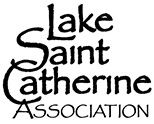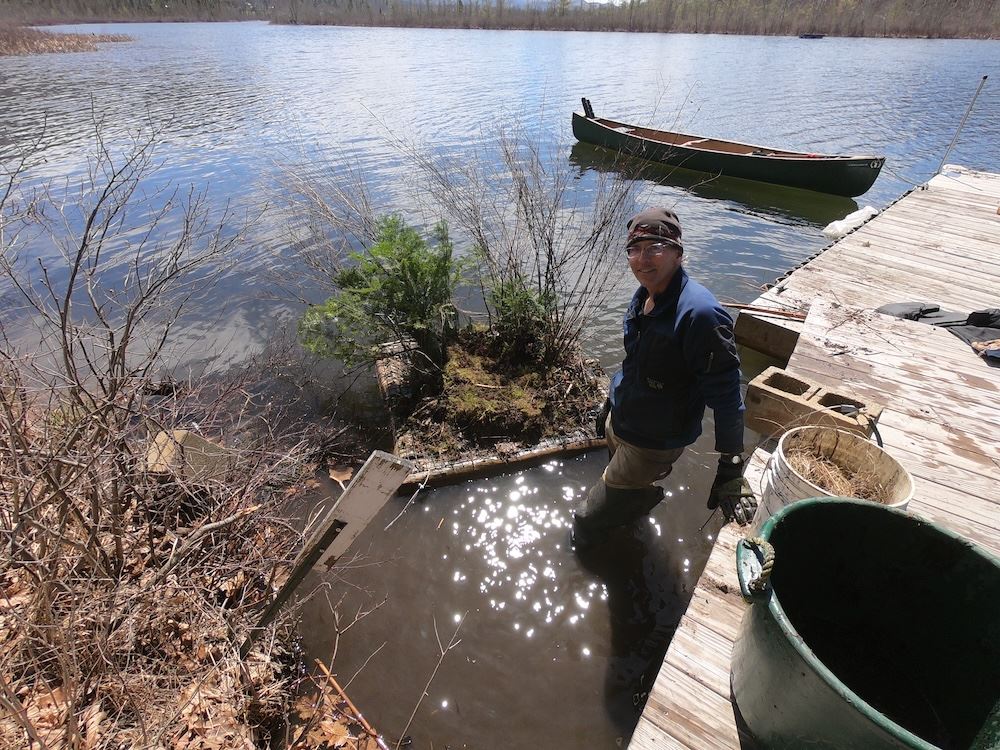For the preservation, protection, and maintenance of Lake St. Catherine |
 |
Wildlife on Lake St. Catherine
EAGLES, AND LOONS, AND TURTLES, OH MY!
Lake St. Catherine is teeming with wildlife - with birds and animals of all sizes making the lake their home.
On any given day, you could see eagles, loons, herons, ospreys, multiple species of ducks, numerous species of smaller birds, muskrats, foxes, turtles, and the list goes on...
While everyone may have their own favorite lake critter, the two that seem to generate the most excitement are our nesting eagles, and our visiting loons.
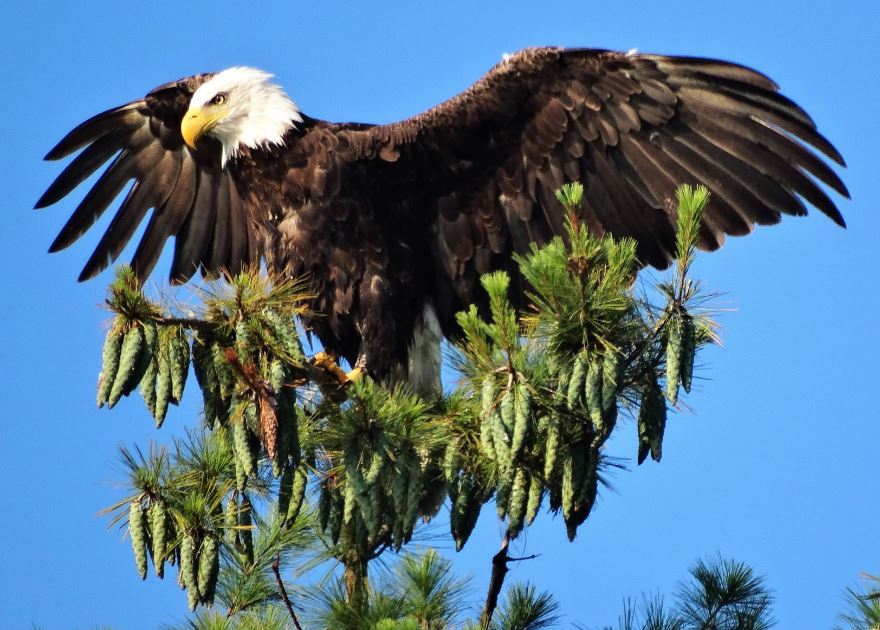 NESTING EAGLES ON LAKE ST. CATHERINE
NESTING EAGLES ON LAKE ST. CATHERINE
For many years, a nesting pair of eagles have made Lake St. Catherine their home. During this time, the eagles have parented numerous eaglets from their nest on Cones Point.
They can be spotted all around the lake as they perch and chitter away in the tall trees, or as they are hunting for fish from the lake, or as they are soaring above the lake with their fledglings, or as they fly in large limbs to fortify their nest.
They are truly amazing to observe, and we are privileged to have them on Lake St. Catherine!
Just check out the photo on the right by Lake St. Catherine photographer Karen Velsor. Amazing!
Here's a video of a pair of eagles with a fledgling captured near the Lake St. Catherine State Park:
Notice that the third eagle does not have the the white head and bright yellow bill, indicating that it is a juvenile. The juvenile also appears larger than the adults, which can be from having longer flight feathers in their first year as they learn to fly.
VISITING LOONS ON LAKE ST. CATHERINE
We think it’s safe to say that the Lake St. Catherine community’s interest in our visiting loons is peaking...
The number of loons observed at Lake St. Catherine have been increasing year over year. In 2022, loon biologist Eric Hanson from the Vermont Center for Ecostudies gave a fantastic presentation at the LSCA’s Annual Meeting (which you can view below), as did Scott MacLachlan at a presentation arranged by the Rutland County Audubon Society at the Poultney Public Library. Photos and videos of the loons are frequently posted on the LSCA's Facebook page, and on a LSC community Facebook Group called Lake St. Catherine - Vermont.
In 2023, Channel resident Dawn Smith-Pliner observed and recorded loons appearing to perform nesting activities. Eric confirmed this was the case, and came down to Lake St. Catherine with 'Loon Nesting Area' signs. But, after visiting the site, he could tell that they would not be successful in building a nest - so we did not place the signs at that time. However, because of this activity, Eric believes that these loons are now a 'Territorial Pair', and will return this spring, to the same spot, to attempt to nest again.
So, on April 7th, 2024, Eric came to the lake, and we assisted him in building and installing a loon nesting platform in the Channel:
You can read more about the building and installation of this loon nesting platform here.
This is our goal:
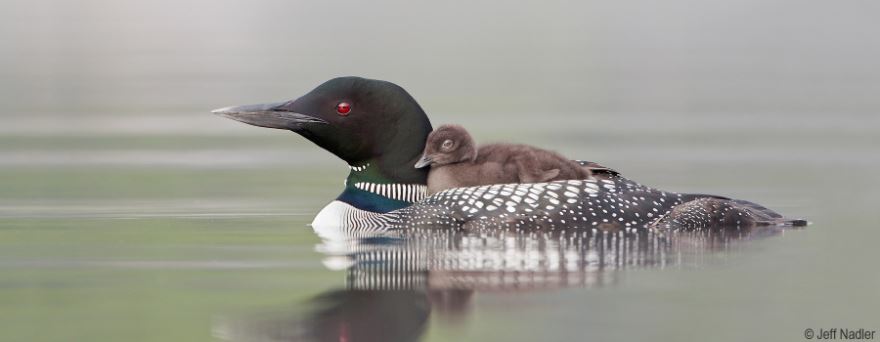
Photo: Courtesy of the Vermont Center for EcoStudies, by Jeff Nadler
LEAD TACKLE AND MONOFILAMENT (FISHING LINE) COLLECTION PROJECT
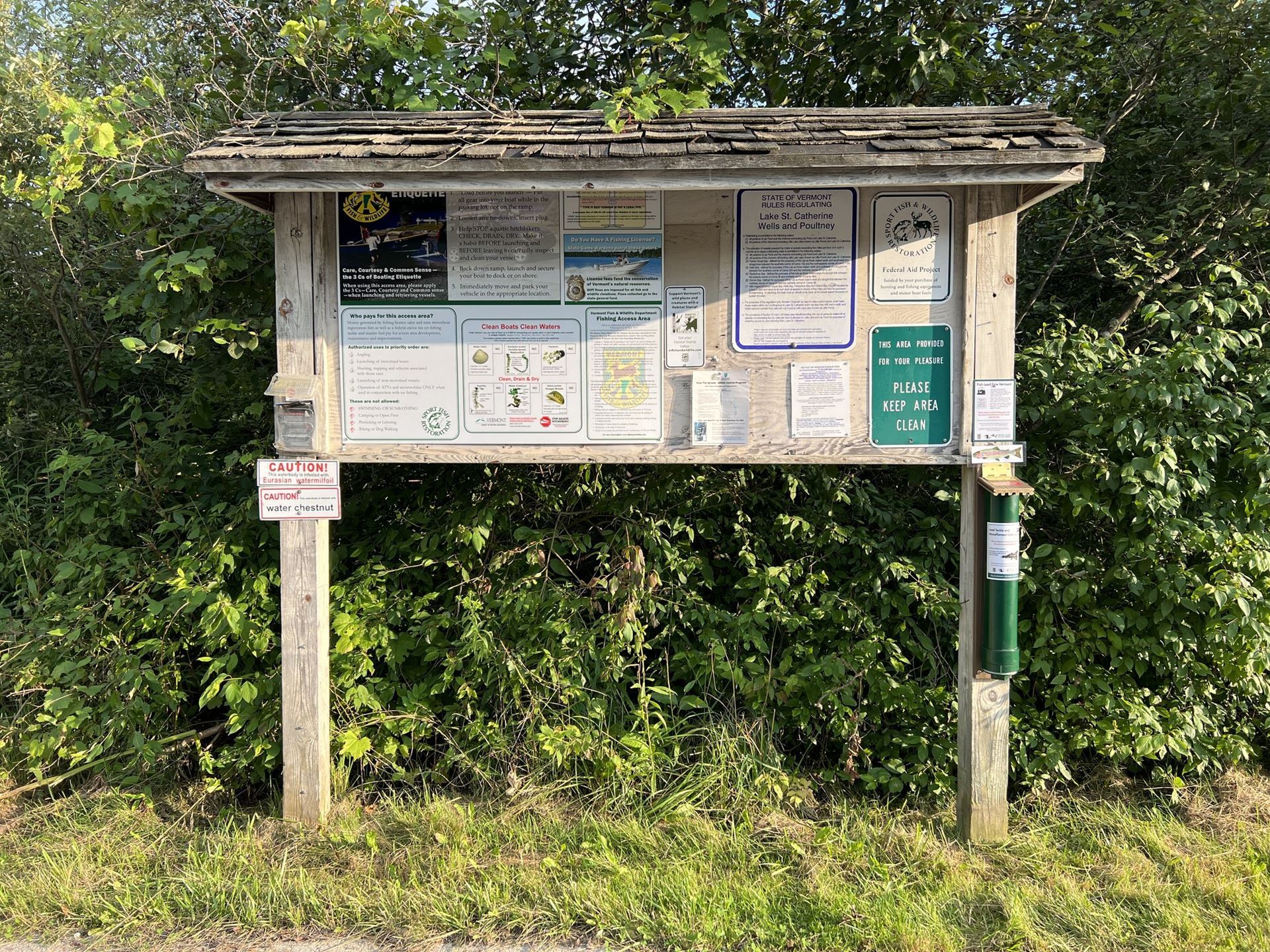 Every year, lead tackle and discarded monofilament line kills aquatic wildlife dependent on Vermont lakes. Entanglement in fishing tackle and poisoning by lead sinkers account for nearly 50% of loon deaths in Vermont. While Vermont's statewide law banning the sale and use of 0.5-ounce lead sinkers has clearly helped reduce mortality from lead fishing gear, 7 of the 9 loon deaths since 2007 occurred between 2014-2020, thus indicating that lead ingestion by loons is still problematic. Furthermore, monofilament mortalities have increased from 8 deaths before 2007 to 11 since 2007 highlighting that fishing gear continues to be a threat to loons in Vermont.
Every year, lead tackle and discarded monofilament line kills aquatic wildlife dependent on Vermont lakes. Entanglement in fishing tackle and poisoning by lead sinkers account for nearly 50% of loon deaths in Vermont. While Vermont's statewide law banning the sale and use of 0.5-ounce lead sinkers has clearly helped reduce mortality from lead fishing gear, 7 of the 9 loon deaths since 2007 occurred between 2014-2020, thus indicating that lead ingestion by loons is still problematic. Furthermore, monofilament mortalities have increased from 8 deaths before 2007 to 11 since 2007 highlighting that fishing gear continues to be a threat to loons in Vermont.
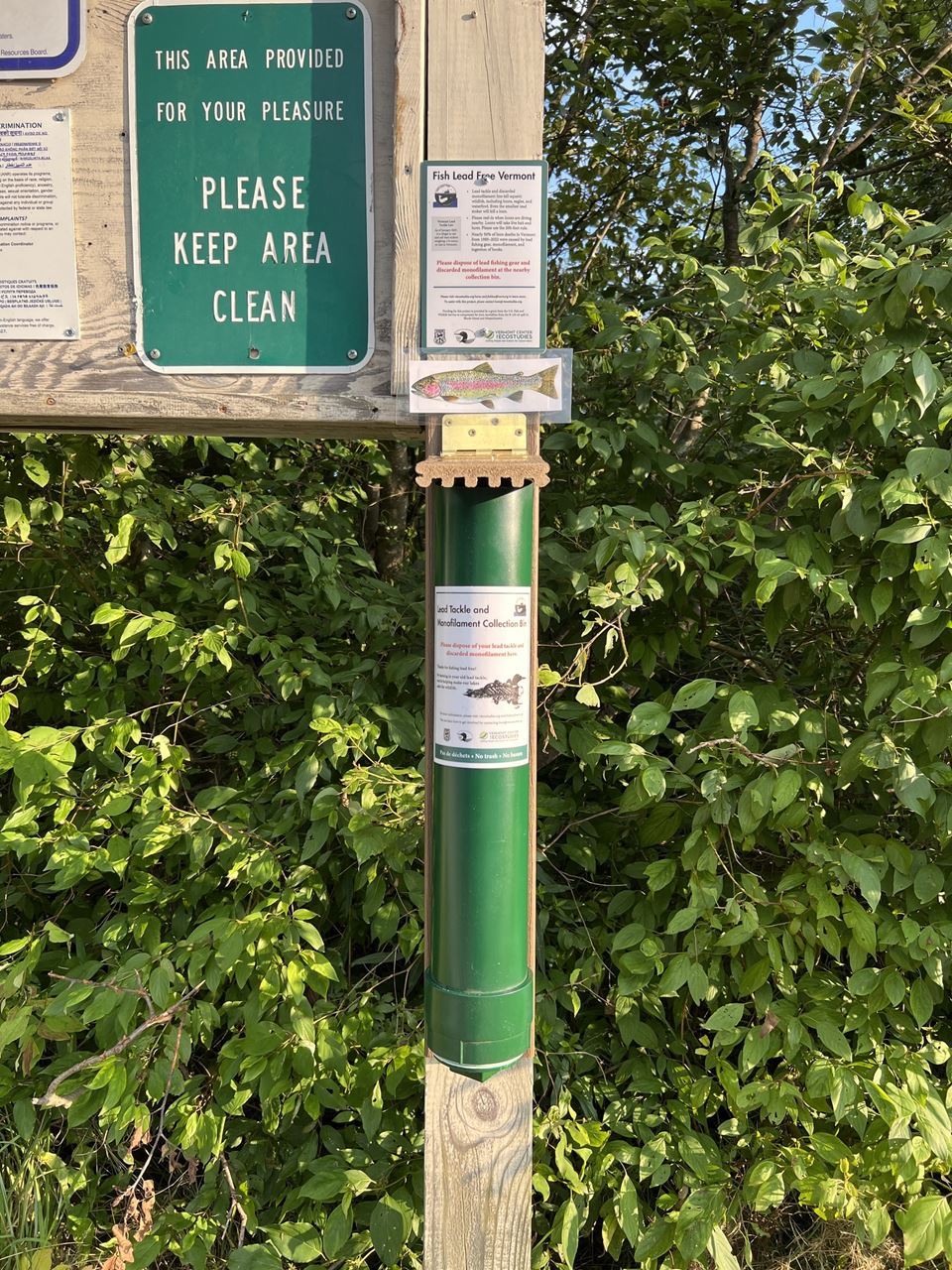 Lead (Pb) is a neurotoxin that attacks the nervous system and can lead to blindness, decreased reproductivity, seizures, and death. One lead sinker will kill a loon. The ingestion of lead fishing tackle is virtually always fatal for loons, with death typically occurring within 2–4 weeks. And it's not just loons. Lead poisons eagles, swans, some mammals, and other aquatic birds as well. As of January 2007, it is illegal to use and sell lead sinkers weighing one-half ounce or less to fish within Vermont.
Lead (Pb) is a neurotoxin that attacks the nervous system and can lead to blindness, decreased reproductivity, seizures, and death. One lead sinker will kill a loon. The ingestion of lead fishing tackle is virtually always fatal for loons, with death typically occurring within 2–4 weeks. And it's not just loons. Lead poisons eagles, swans, some mammals, and other aquatic birds as well. As of January 2007, it is illegal to use and sell lead sinkers weighing one-half ounce or less to fish within Vermont.
In August 2023, the LSCA partnered with the Vermont Center for Ecostudies, and Vermont Fish & Wildlife, to install a monofilament and lead collection tube at the boat launch. During their normal boat inspections, our Greeters will educate boaters about this collection program so that visitors can quickly look through their tackle box for old lead gear and bundles of fishing line to deposit in the tubes.
We are all excited to see so many loons on LSC, but we need to give them their space (along with all wildlife on the lake). Please enjoy observing them from afar, but not follow them or approach them with your vessel. Let’s do all we can to keep our loons safe, and work to create an environment to support a nesting pair so we can see baby chicks riding on the backs of their proud parents, as in the photo above.
LEARN MORE ABOUT LOONS
Here is Eric Hanson's presentation about loons at the LSCA's 2022 Annual Meeting & Dinner:
